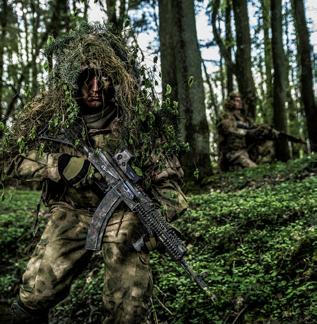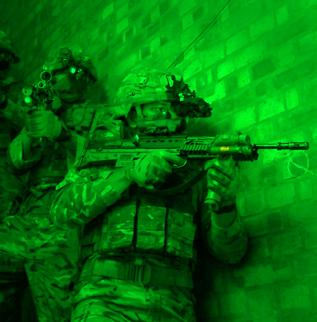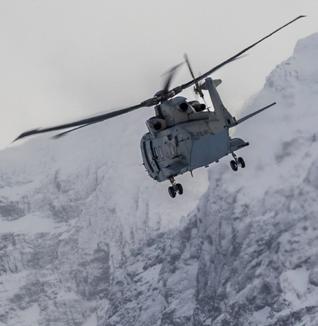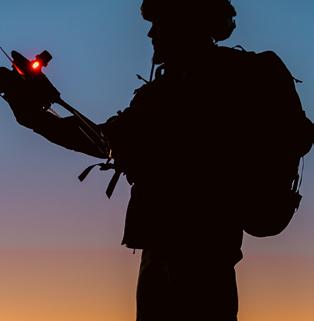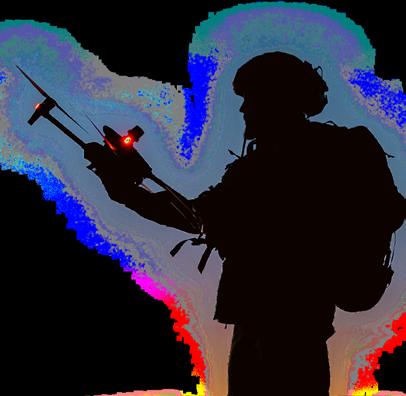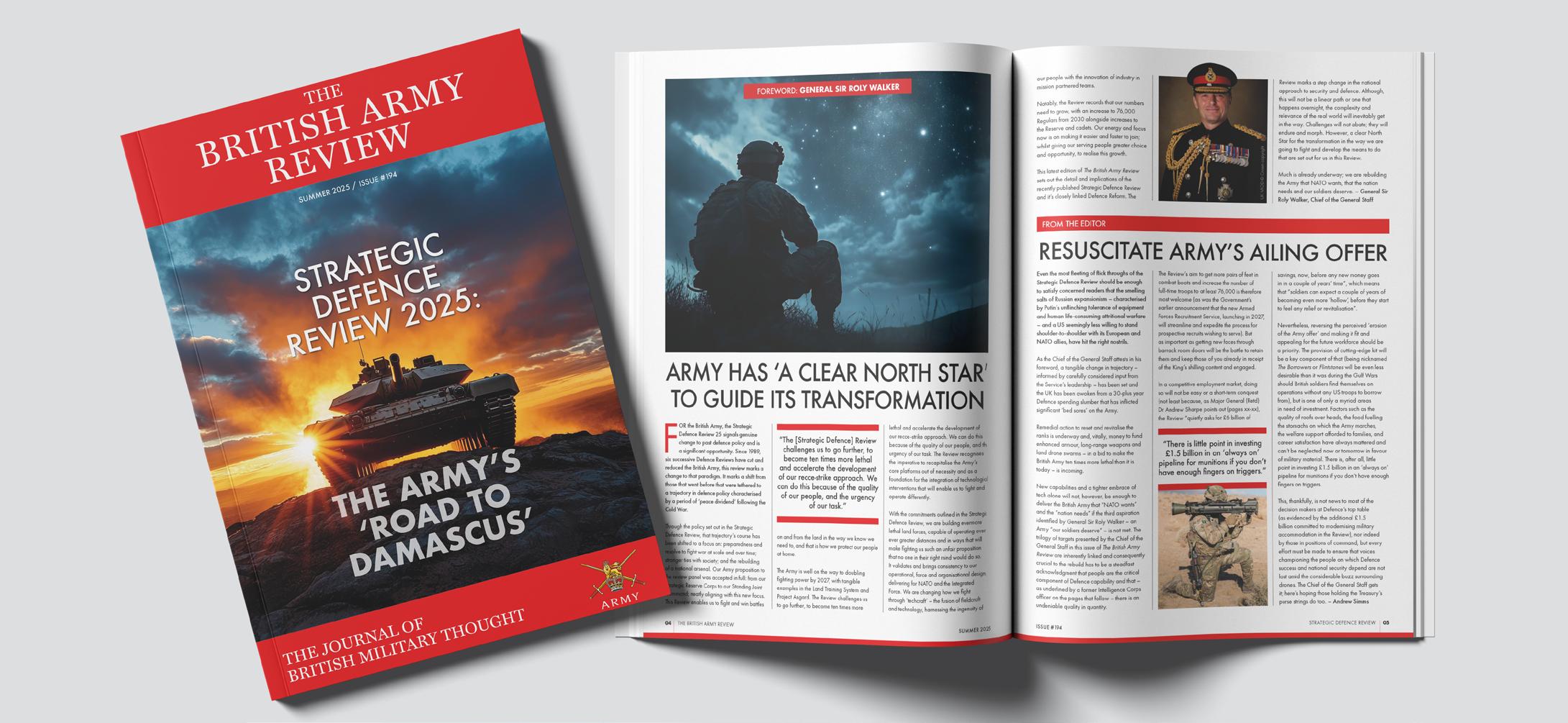CHACRDIGEST
Commentators expected very little meaningful progress from the Alaska summit in August and most concluded that President Putin gained more from it. Fortunately, concerns about a potential betrayal of Ukraine, in their absence, were not realised. Any comparison to the 1938 Munich conference was largely inaccurate and inappropriate, although one commentator insightfully identified that Chamberlain could be forgiven, in 1938, for not fully anticipating Hitler’s future actions. There can be no debate, however, about President Putin’s ongoing war crimes and goal of subjugating the sovereign state of Ukraine. As ever, history has much to teach us. If only we’d listen.
The views expressed in this Digest are not those of the British Army or UK Government. This document cannot be reproduced or used in part or whole without the permission of the CHACR. chacr.org.uk
RUSSIA
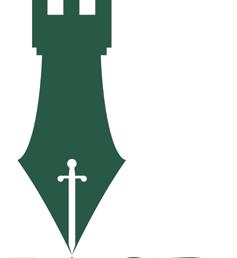
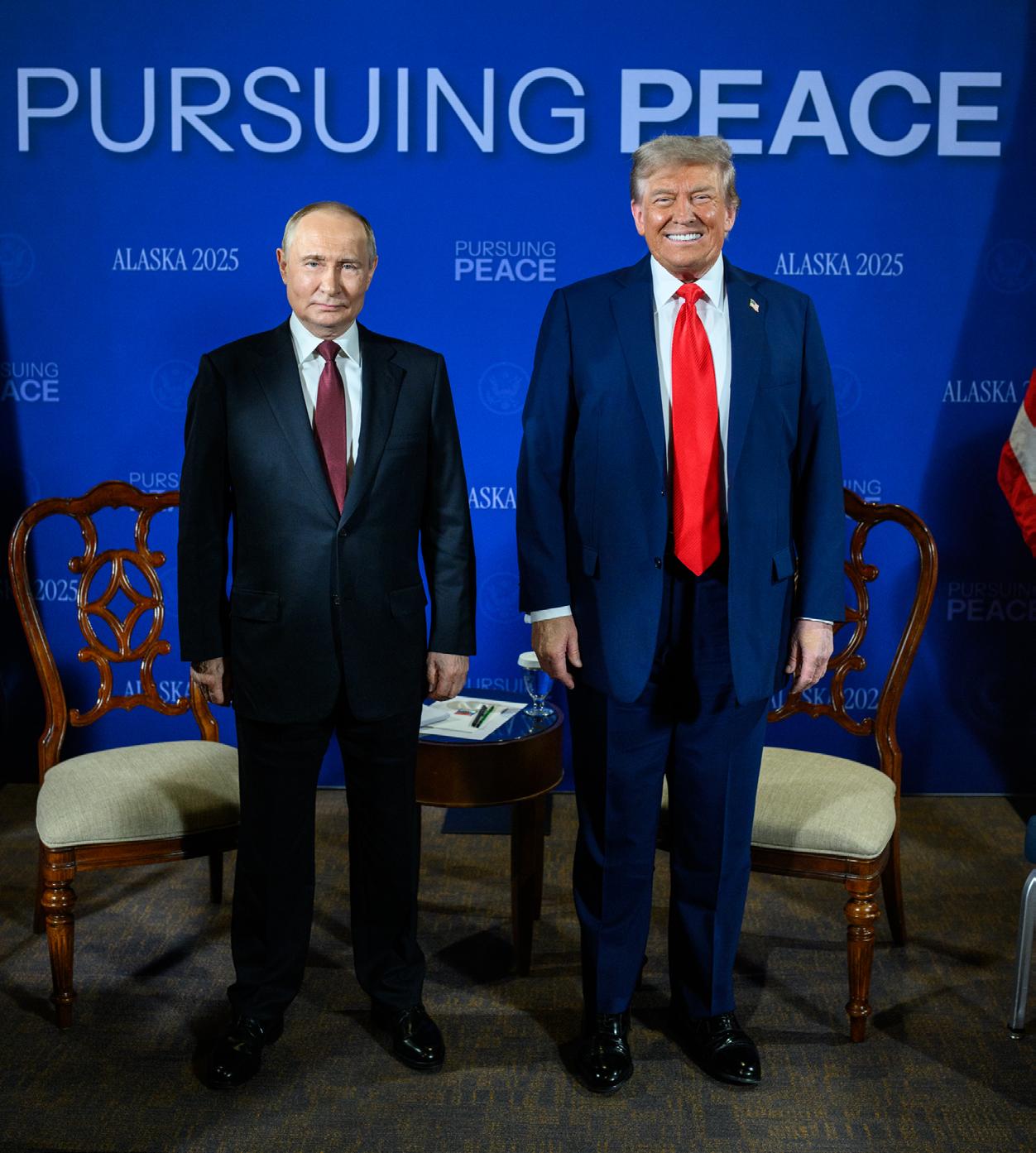
Prior to the Alaska summit, the Financial Times considered President Trump’s ignorance of President Putin’s true intentions and his desire to see a deal done quickly to be reasons why the Russian chief could be hopeful ahead of the talks. Amusingly, the article concludes that whilst Theodore Roosevelt said US presidents should speak softly and carry a big stick, Trump had been “talking loudly and wielding a noodle”. The Carnegie Endowment for International Peace suggested, before the summit, that it risked isolating the United States from Ukraine and Europe. Afterwards, it recognised that any other outcome, other than a ceasefire in Ukraine, was a win for Putin. This was echoed by Matthew Savill, Tom Keatinge and Dr Neil Melvin from RUSI, who commented that, in sum, Putin avoided concessions, Trump withheld economic pressure, and Europe was left carrying more of the security and economic burden. Moreover, Alexander Baunov, argued, Putin’s insistence on “fair balance of European and global security” could mean ending the war in Ukraine now depends not only on Ukrainian concessions but how far the West is prepared to retreat in Europe and globally. The danger is Ukraine becomes a hostage for extracting concessions from other countries in the West.
The former UK Ambassador to Moscow and Kabul, Sir Laurie Bristow, writing in Prospect magazine, is clear the first rule of dealing with Putin is to listen to what he says. In this context, a “land for peace” deal could never work because it assumes the conflict is primarily about territory, contrary to all that President Putin has said and done regarding Ukraine. This is addressed in depth by the Centre for Democratic Integrity in a series of recently published articles focused on Russian political mythology and the war on Ukrainian identity. Most notably, Alexey Levinson’s article Through the Russian Gaze: Perceptions of Ukraine and Ukrainians
Away from the theatre of the Alaska summit, John Foreman’s article for The Moscow Times, Medvedev Doesn’t Matter. Stop Acting Like He Does gives informed insight into the ‘noise’ surrounding the former President and warns against exaggerating the relevance of his extreme views. Equally, Peter Frankopan’s substack – From Washington to the Wheatfields: Why Putin Wants a Deal Now – and article for the International Institute for Strategic Studies contains meaningful analysis of factors affecting decision making in the Kremlin, rather than the journalistic speculation and hyperbolic conjecture of the 24-hour news channels. He highlights that unseasonable spring frosts damaged more than 240,000 hectares of crops across Russia, with 100,000 hectares lost outright. Record summer temperatures followed, meaning the 2025 harvest is likely to be Russia’s worst in years. Frankopan concludes “this will weaken one of the key pillars of Russia’s global position at a time when others (such as gas and oil exports) are under strain”. This perspective is also presented in the Foreign Affairs article Putin’s Play for Time: How Trump’s Performative Diplomacy Strengthens Russia’s Hand, which argues that despite putting Russia’s economy and society on a war footing, the country’s ballooning budget deficit indicates severe pressure on the economy.
It is also worth reading the RAND report Understanding Russian strategic culture and the low-yield nuclear threat, which examines, through historical, cultural and ideological analysis, how Russian strategic culture shapes its nuclear posture, and concludes with the motivations underlying Russia’s ‘zero-sum’ nuclear doctrine and decision making and the challenges these pose for NATO deterrence and escalation management.
NATO
The potential implications for NATO of Russia’s aggression are outlined in Politico’s interview with Lord Robertson, the former NATO Secretary General. He highlights the need for politicians across Europe, but especially in the UK, to clearly outline the dangers and risks, adding that the British public are unaware of defence shortfalls and that “if they were aware of it that might change opinions”. The article concludes that persuading the public of the imminent threat from Russia is one of the biggest risks to delivering higher spending in many NATO countries.
In this context, the article Will Germany rearm quickly enough? addresses the transformational cultural and political shift for a country that was rebuilt on a pacifist and demilitarised legacy after the Second World War. It concludes that “as the largest European economy, with a rejuvenated sense of purpose in Europe, Germany is uniquely placed to drive the swift rearmament NATO badly needs”. However, it warns against Germany failing to prioritise the ultimate goal of stronger European security. If Germany falters in the context of a disengaging US and an aggressive Russia, NATO and Europe’s security looks far more uncertain.
MIDDLE EAST
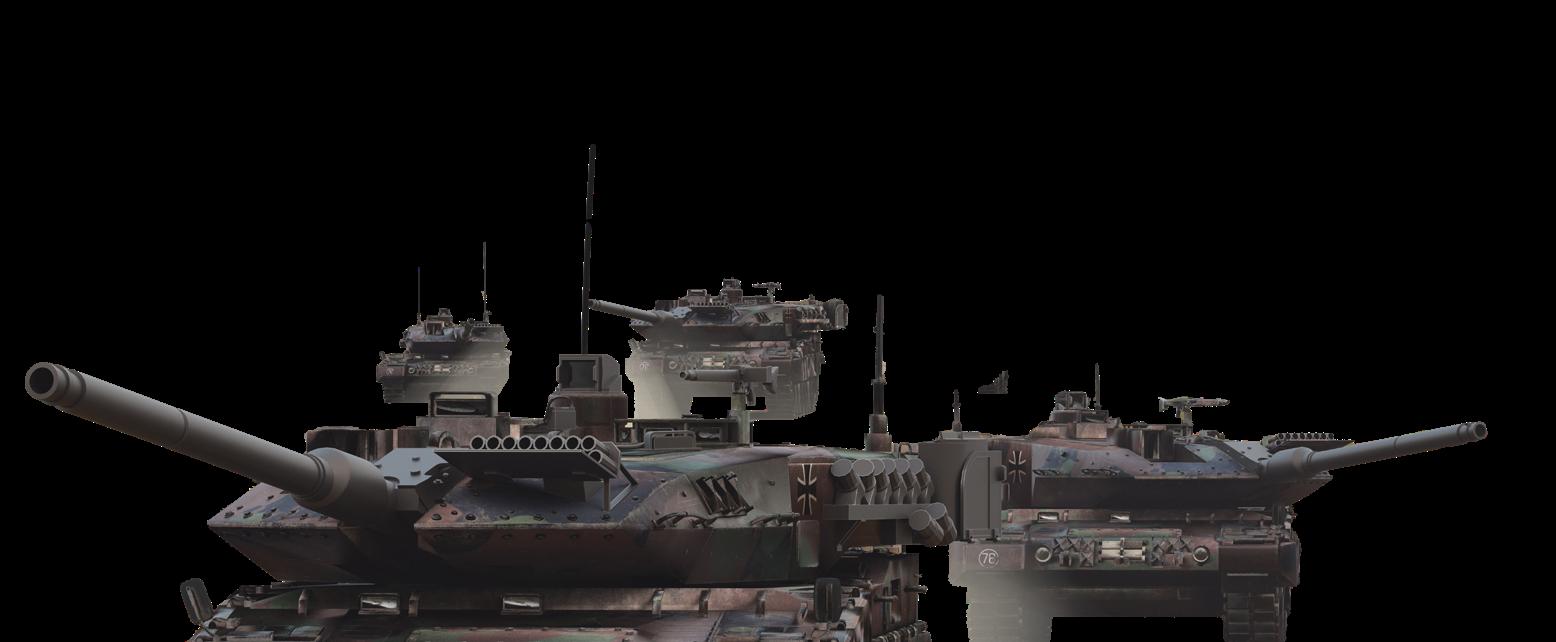
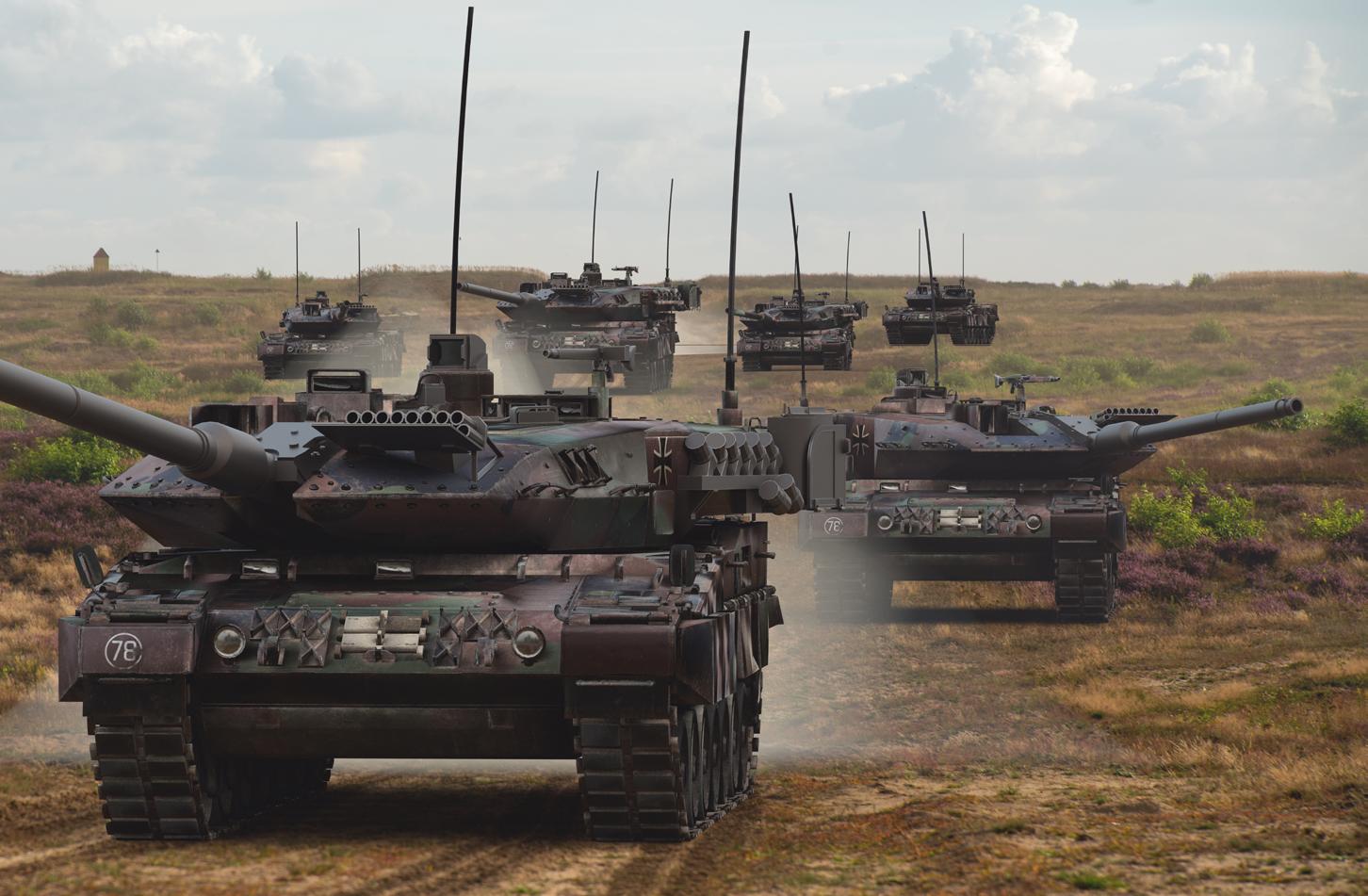
A recent episode of the CHACR podcast Facing Coming Storms focuses on the aftermath of the US ‘Operation Midnight Hammer’ strikes on Iranian nuclear sites. This is supported by analysis from the Center for Strategic and International Studies, which uses recent satellite imagery to present a realistic picture of the damage caused. It highlights that US bombs inflicted significant blows to Iran’s nuclear programme whilst Israel’s broader campaign targeting military leaders and defence industrial base targets revealed a deep penetration of intelligence. However, as the Royal United Services Institute pointed out, the strikes did not completely eliminate Iran’s nuclear capabilities, and the status of their highly enriched uranium stockpile remains unknown.
It is also worth reading the War on the Rocks article about the Islamic State prison camps in Syria and the potential they may become ‘powder kegs’ if USAID funding and a reduction in force posture allows radicalised militants and their families to escape, with potentially long-term implications for security across the region. Equally, the Financial Times article about the growing battle within Syria to dismantle Assad’s narco-state highlights the seizure of more than 200 million Captagon pills between January and August 2025, 20 times the number Assad’s forces seized in all of 2024, and the damage internal drug and organised crime wars will have on Syria’s ability to stabilise itself. Even more systemic, the Chatham House article on Iraq’s water crisis highlights the suspension of September wheat cultivation due to severe water shortages and that, rather than an environmental issue, it is a test of governance measured in eroded public trust and weakened national stability.
INDO-PACIFIC
The Cambodian rocket barrage into Thailand on 24 July and Thai retaliatory air strikes came as no surprise to Professor William Hurst, who – in a recent article – identifies the deeper historical, domestic political and geopolitical dynamics driving this conflict. Worryingly, it concludes it is only a question of when, not if, we see another round of confrontation.
President Trump and Tamil Nadu farmers rarely have much in common. However, as a The Lowy Institute article highlights, the introduction of 50 per cent US tariffs on Indian imports places Prime Minister Modi in a quandary of assuaging President Trump or the farmers. His commitment that “India will never compromise with the interests of its farmers” highlights the growing power of the farmers.
The Lowy Institute has also highlighted growing diplomatic and trade connections between Taliban governed Afghanistan and Russia and Central Asian states such as Tajikistan and Kazakhstan. The reasons identified are based on valuable trade but also a concern with potential radicalisation and terrorist threats. In sum, the regional calculus appears to be that a stable and drug-free Afghanistan is beneficial to neighbourhood stability. Equally, the Chatham House article Push to deport failed Afghan asylum seekers from Europe could benefit the Taliban highlights that Afghan engagement with Europe on migration management can help build rapport in the absence of Western diplomatic recognition. Similarly, it suggests that growing anti-immigration rhetoric and the rise of far-right politics in Europe have challenged traditional values of international relations.
Ostensibly about how African businesses can learn from the differences between US and China’s economic models, an episode of the Lex Fridman Podcast featuring Keyu Jin – an economist at the London School of Economics and the author of The New China Playbook – discusses how Chinese reforms drove growth and how that contrasts with the United States. Well worth a listen for a recent history lesson and a reminder of the meteoric rise of the Chinese economy.
AFRICA
It has long been known that the map we see on our wall does not reflect physical reality. The landmass of Europe and America depicted on typical maps is too big, and the continent of Africa is too small. On a typical map, Africa appears to be about the same size as Greenland when, in reality, it is about 14 times bigger. African Union Commission Deputy Chairperson Selma Malika Haddadi considers when the size of Africa is misrepresented on maps, the world’s perception of the continent is also distorted, adding: “It might seem to be just a map, but in reality, it is not.” As a result, the African Union has backed a campaign to replace the map that shrinks Africa.
Nigeria has the fourth largest economy on the African continent, but among the lowest gross domestic product per capita in Africa. Corruption is the culprit. Dr Leena Koni Hoffmann’s article overwhelming sense of intractable corruption has fuelled frustrations of marginalised groups and the sense of hopelessness among Nigeria’s youth. These grievances drive political violence, fuel extremist insurgencies and perpetuate a vicious cycle of corruption, systemic inefficiencies and underdevelopment.
AMERICAS
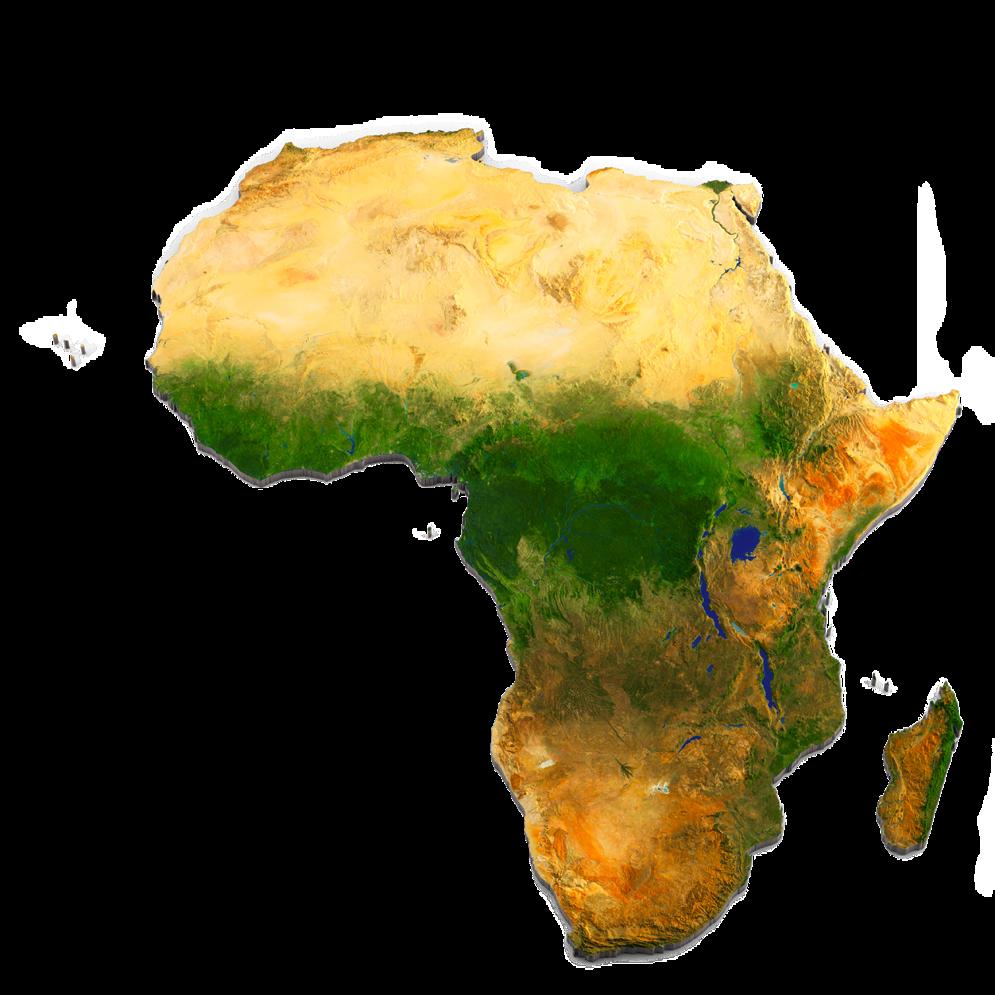
Boliva and South America generally are rarely discussed in the news in Europe, as a result the Chatham House article Bolivia shifts to the right, but its socialist legacy will linger is worth reading. It details how Bolivian voters have ended two decades of leftist rule but that Evo Morales, founder of the Movimiento al Socialismo (MAS) party, can still mobilise ‘the street’ and electoral support, or lack thereof, never mattered much to him. Equally, the article points out, previous allies, Venezuela, Cuba and China, are unlikely to passively watch potential changes to Bolivia’s foreign policy and international relationships.
OUT NOW...
l “As the UK re-evaluates its doctrinal and force development stance, including in light of the opportunities offered by the recent Security Defence Review, the research project captured in this Ares & Athena, commissioned originally by 1st UK Division, explores a range of aspects of the utility of light forces. We have divided this publication into three parts. The first explores the history of light forces and offers examples of how they may have been used and useful in the past – by design, as opposed to by necessity. The second explores how specific-to-purpose light forces have and can be used and those battlespace circumstances that demand their use. The third looks at the emphasis that is placed upon light forces by some of the Nordic members of the NATO alliance alongside whom the UK is expecting to operate. In so doing we ask in what way might ‘might be light’? – Dr Andrew Sharpe, Director CHACR.
l “The [Strategic Defence] Review challenges us to go further, to become ten times more lethal and accelerate the development of our recce-strike approach. We can do this because of the quality of our people, and the urgency of our task.” – General Sir Roly Walker, Chief of the General Staff, in his foreword for the latest British Army Review
